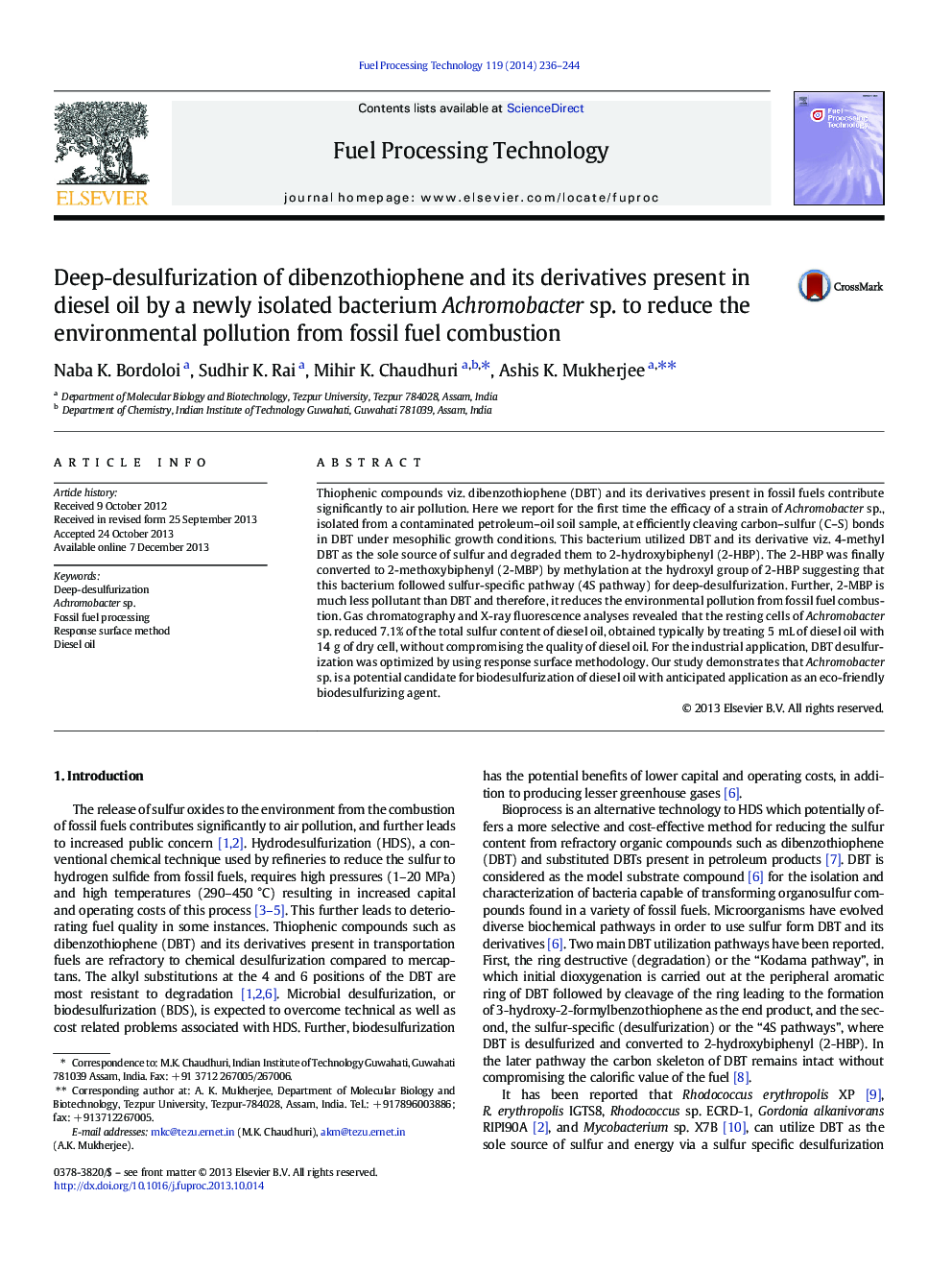| کد مقاله | کد نشریه | سال انتشار | مقاله انگلیسی | نسخه تمام متن |
|---|---|---|---|---|
| 209901 | 461687 | 2014 | 9 صفحه PDF | دانلود رایگان |

• The newly isolated bacterium Achromobacter sp. causes deep desulfurization.
• The end product of DBT desulfurization by Achromobacter sp. is 2-methylbiphenyl.
• The 2-MBP is less toxic and hence this desulfurization process is eco-friendly.
• This is the first report on statistically optimization of DBT desulfurization.
• The present biodesulfurization process does not compromise the quality of diesel oil.
Thiophenic compounds viz. dibenzothiophene (DBT) and its derivatives present in fossil fuels contribute significantly to air pollution. Here we report for the first time the efficacy of a strain of Achromobacter sp., isolated from a contaminated petroleum–oil soil sample, at efficiently cleaving carbon–sulfur (C–S) bonds in DBT under mesophilic growth conditions. This bacterium utilized DBT and its derivative viz. 4-methyl DBT as the sole source of sulfur and degraded them to 2-hydroxybiphenyl (2-HBP). The 2-HBP was finally converted to 2-methoxybiphenyl (2-MBP) by methylation at the hydroxyl group of 2-HBP suggesting that this bacterium followed sulfur-specific pathway (4S pathway) for deep-desulfurization. Further, 2-MBP is much less pollutant than DBT and therefore, it reduces the environmental pollution from fossil fuel combustion. Gas chromatography and X-ray fluorescence analyses revealed that the resting cells of Achromobacter sp. reduced 7.1% of the total sulfur content of diesel oil, obtained typically by treating 5 mL of diesel oil with 14 g of dry cell, without compromising the quality of diesel oil. For the industrial application, DBT desulfurization was optimized by using response surface methodology. Our study demonstrates that Achromobacter sp. is a potential candidate for biodesulfurization of diesel oil with anticipated application as an eco-friendly biodesulfurizing agent.
Journal: Fuel Processing Technology - Volume 119, March 2014, Pages 236–244